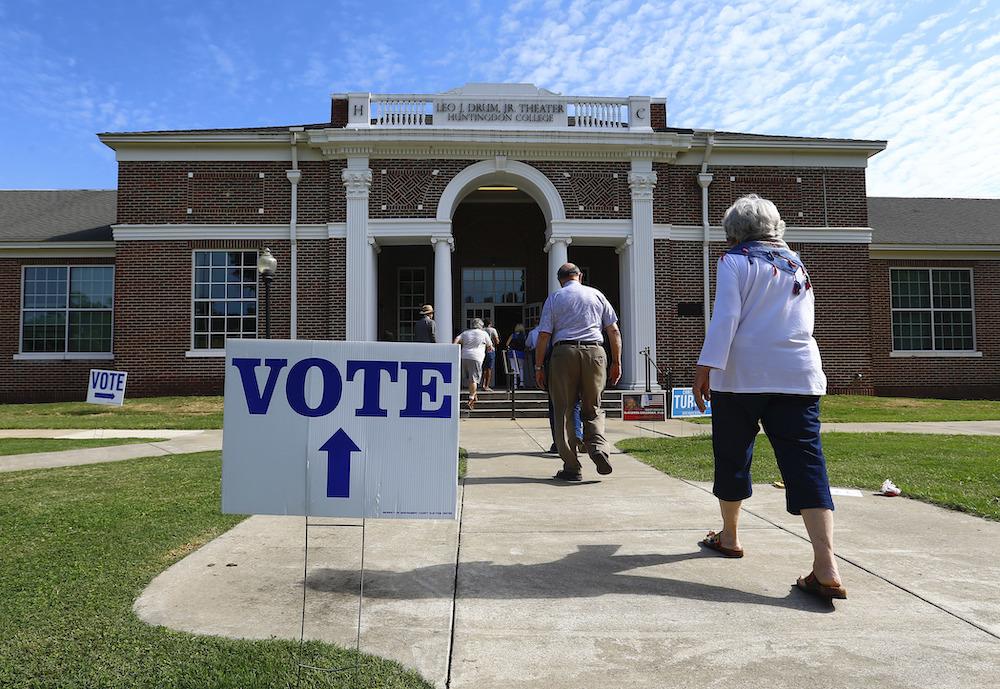Republicans in the General Assembly are requesting a hearing by the full 15-member North Carolina Court of Appeals to reconsider an order allowing felons to vote in November.
Nicole Moss, an attorney representing state Republican lawmakers, filed a motion with the appeals court on Thursday to request an en banc hearing to reconsider an order by a split three-member appeals court panel issued earlier this week.
The panel ruled 2-1 on Tuesday to allow felons who have completed active prison time to vote in the November elections, despite an ongoing appeal and pending request for the North Carolina Supreme Court to intervene in the case.
The decision upholds a superior court order issued in March that states “if a person otherwise eligible to vote is not in jail or prison for a felony conviction, they may lawfully register and vote in North Carolina.”
The superior court ruling, issued in a 2-1 split decision, overturned a 1973 law that prohibited felons from voting until their sentences are complete, including post-release probation or parole. The case stems from a 2019 lawsuit filed by the Raleigh-based Community Success Initiative to strike down the law.
The state Supreme Court in September blocked felon voting in last year’s election, and the appeals decision on Tuesday extended the ban through upcoming elections in May and July, but would lift the restriction after that. The superior court panel that overturned the 1973 law included one Democrat and one unaffiliated judge, with a Republican judge in dissent. The appeals panel included two Democrat judges in favor and a Republican opposed.
The full North Carolina Court of Appeals includes 10 Republicans and five Democrats. Democrats outnumber Republicans on the state Supreme Court 4-3.
Moss argued the lower court injunction that overturned the 1973 law prohibiting felons from voting until parole or probation is complete “would cause irreparable harm to the state and its voters in any election.”
Moss cited Appeals Court Judge Jefferson Griffin, who dissented from Tuesday’s order and suggested an en banc hearing. Griffin “correctly observed, ‘If convicted felons are permitted to vote in the November election and petitioners subsequently prevail on the merits of their appeal,’ as they likely will, ‘untold thousands of lawful votes cast by North Carolina citizens likely will be diluted by votes cast by convicted felons in violation of our state constitution,'” Moss wrote.
Moss argued that allowing felons to vote before the case is resolved would require the state Board of Elections to implement new rules “in the space of a few months” and would “result in voter confusion and consequent incentive to remain away from the polls.”
“Legislative defendants respectfully request that this court rehear en banc their petition for a writ of supersedeas and issue the writ requested in that petition, staying the superior court’s order of March 28, 2022 and maintaining the status quo established by the Supreme Court’s order of September 10, 2021 until this court can resolve the appeal that has been noticed from the superior court’s final judgment,” she wrote.
A majority of the Court of Appeals’ 15 judges must support the request for an en banc hearing to reconsider Tuesday’s ruling. The state Supreme Court does not face a deadline for deciding whether to intervene in the case, according to the Carolina Journal.
Sixty-six percent of likely general election voters support current restrictions on felons voting, including 54% that oppose the trial court ruling that allows felons to vote during parole or probation, according to a recent poll released by the John Locke Foundation.
This article was originally posted on North Carolina lawmakers want full appeals court to reconsider felon voting order











More Stories
Milwaukee’s election boss needs to stop ‘getting out the vote’
Early voting under way for Texas primary election runoff
Thousands of Arkansas residents cast ballots before Tuesday’s primary